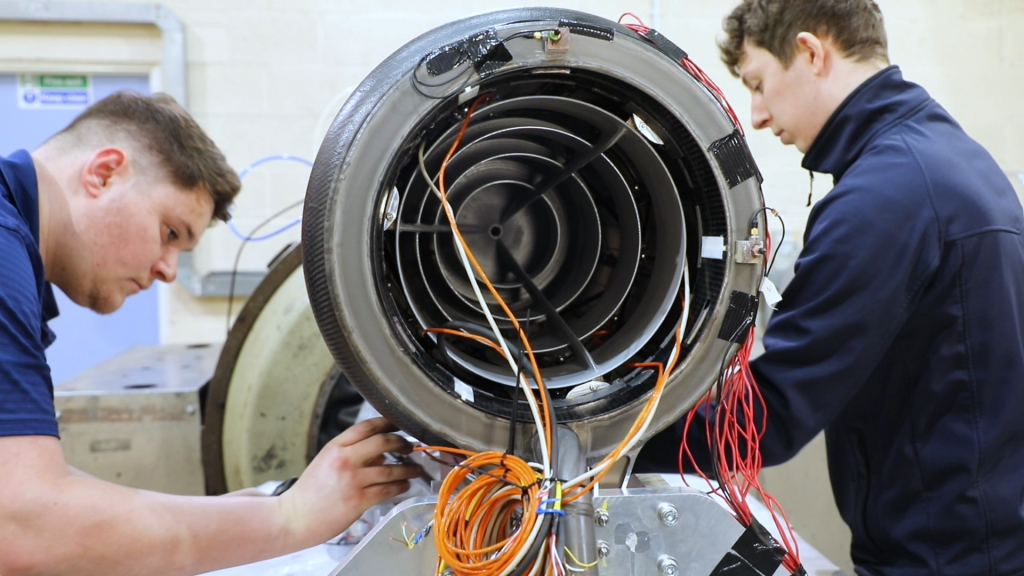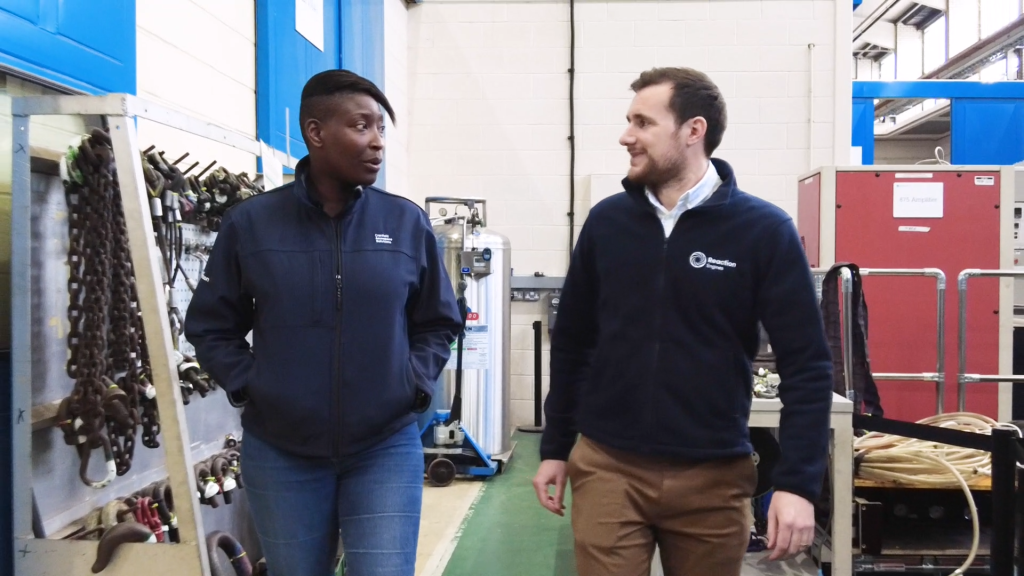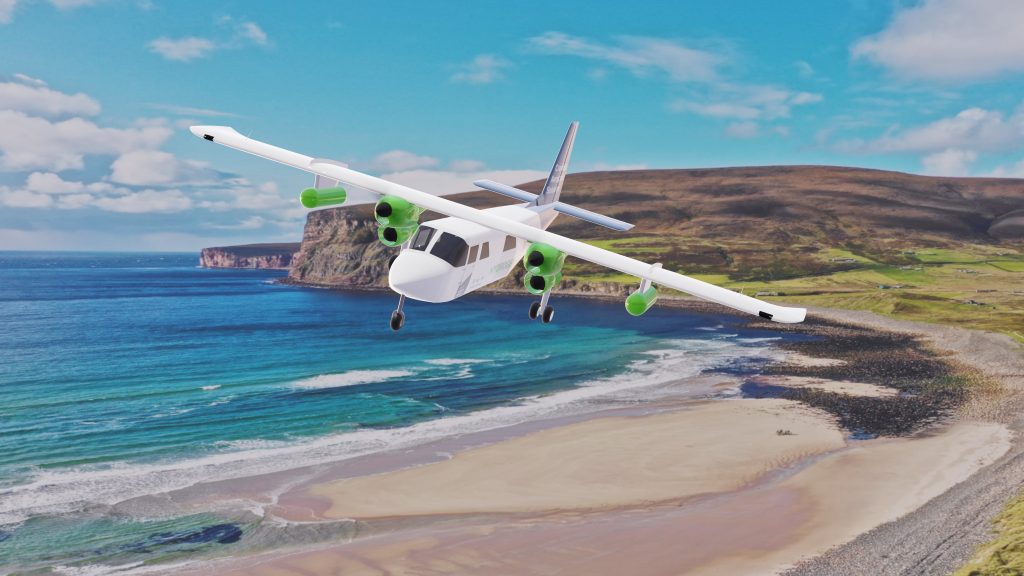Successful vibration and shock tests on Project FRESSON – Reaction Engines’ collaboration with Cranfield Aerospace Solutions – brings zero carbon flight a step closer.
Reaction Engines and Cranfield Aerospace Solutions (CAeS) have reached an important milestone in their collaboration on Project FRESSON. Successful vibration and shock tests have shown that our radiator meets the requirements to operate safely – paving the way for further ground and flight testing.
Project FRESSON addresses a critical obstacle in the journey toward hydrogen-electric flight: thermal management. It marks a significant stride in advancing the feasibility of hydrogen-electric propulsion in aviation.
“This period of testing is the culmination of a lot of work for the project team in the design and manufacture of the unit. Getting the hardware tested and showing it meets the customer requirements is a big step forward for the project.”
Andrew Roseman
Senior Systems and Test Engineer
Reaction Engines

In traditional, combustion-based aircraft powertrains, the majority of the waste heat is dissipated in the high temperature stream of exhaust gases produced by the engine. Hydrogen fuel cells, in contrast, produce significant amounts of low-grade heat which must be removed from the stack.
This presents a unique engineering challenge. Using conventional methods for this heat rejection from hydrogen fuel cells would result in large, heavy heat exchangers, imposing mass and drag penalties that would compromise aircraft range and performance.
Project FRESSON embraces an iterative collaboration model between CAeS and technology partners Reaction Engines. This approach ensures that each component is optimised within the context of the overall system design, fostering a holistic solution to thermal management.
“CAeS and Reaction Engines work collaboratively at every stage of the project. Together, we’ve guided this testing phase, witnessing firsthand the promising results that have unfolded. Our shared enthusiasm for these advancements drives us further toward our collective goal of achieving zero-emissions flight.”
Titilope Aigoro
Senior Airworthiness and Certification Engineer
Cranfield Aerospace Solutions


Central to the project’s success is the adoption of microtube radiators – game-changing thermal management technology developed by Reaction Engines. These radiators, utilising mixed counter-crossflow to maximise efficiency, represent a shift in heat exchanger architecture. The collaboration has resulted in a lightweight, efficient radiator capable of rejecting over 300 kW of low-grade waste heat while minimising mass and drag penalties.
Through a shared vision, multidisciplinary expertise, and a relentless commitment to excellence, Project FRESSON’s goal is to pave the way for the world’s first truly green, passenger-carrying airline services by 2027.
We develop pioneering technology to elevate life on Earth. Innovating in pursuit of the world's net zero goals. We deliver thermal management solutions to create a better, more sustainable future.